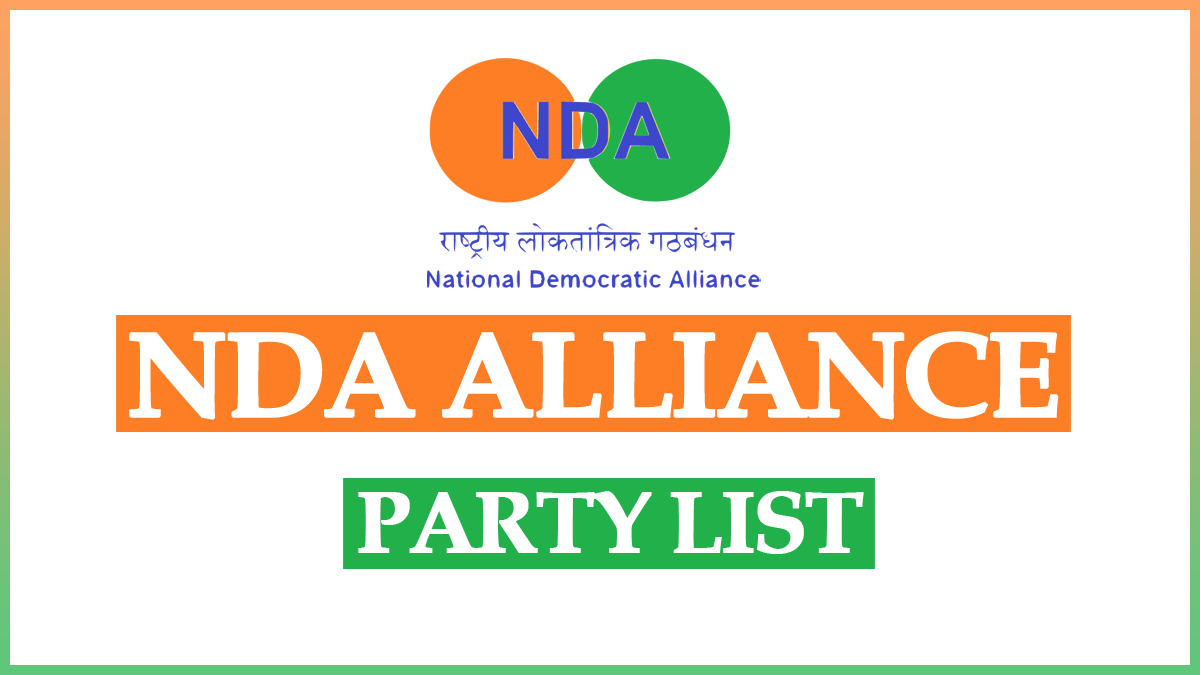26-party alliance I.N.D.I.A. to challenge Modi-led NDA in 2024 Lok Sabha election

26-party alliance I.N.D.I.A. to challenge Modi-led NDA in 2024 Lok Sabha election
The formation of the Indian National Developmental Inclusive Alliance (I.N.D.I.A.), a 26-party coalition, marks a significant development ahead of the 2024 Lok Sabha election in India. The coalition aims to challenge the ruling National Democratic Alliance (NDA) led by Prime Minister Narendra Modi.
This coalition was formed during a multi-party meeting held at the Taj West End hotel in Bengaluru on July 18. Leaders from various political parties representing different regions of the country gathered for a dinner hosted by Karnataka Chief Minister Siddaramaiah.

During the subsequent press conference, it was announced that all 26 parties had unanimously agreed to establish an “11-member coordination committee” during their next meeting in Mumbai. This committee will address crucial issues, including leadership questions and seat sharing arrangements among the participating parties in different states. Additionally, plans were revealed to set up a campaign management secretariat in Delhi.
The formation of such a diverse coalition underscores the importance of forging alliances in India’s complex political landscape, where regional and national parties often play critical roles in elections. The 2024 Lok Sabha election is expected to be closely watched, given the implications for the country’s political future.

The joint resolution issued by the members of the Indian National Developmental Inclusive Alliance (I.N.D.I.A.) carries a strong commitment to safeguarding the idea of India as enshrined in the Constitution. It accuses the Bharatiya Janata Party (BJP) of orchestrating a systematic assault on the nation’s character. This statement underscores the alliance’s determination to preserve the core values and principles of the country, emphasizing its stance on issues related to the Constitution and the character of India.
During the press conference, All India Congress Committee president Mallikarjun Kharge highlighted the impressive scale of the Bengaluru meeting, with 26 parties in attendance, compared to the 16 that met in Patna on June 24 for the first gathering of opposition parties. Kharge also took the opportunity to criticize the media, alleging bias in favor of Prime Minister Modi.
He claimed that the media appeared to be “captured by Modi” and criticized the perceived hostile portrayal of the opposition. Kharge asserted that this situation was unprecedented in his 52 years of political experience. Additionally, he suggested that Modi’s reconstitution of the National Democratic Alliance (NDA) in response to the emerging alliance demonstrated the Prime Minister’s concerns about the growing strength of the opposition. These remarks reflect the political dynamics and narratives at play in India’s evolving political landscape.

The leaders of the Indian National Developmental Inclusive Alliance (I.N.D.I.A.) launched a scathing attack on Prime Minister Modi and the Bharatiya Janata Party (BJP) during their meeting in Bengaluru, highlighting their commitment to preserving the country’s values and character.
West Bengal Chief Minister Mamata Banerjee accused Modi and the BJP of “selling the country” and questioned whether the BJP could withstand the might of I.N.D.I.A. This strong rhetoric reflects the opposition’s determination to challenge the ruling party.

Delhi Chief Minister Arvind Kejriwal, who joined the meeting, emphasized that the alliance’s primary goal is to “save India.” He criticized the Modi-led Union government, highlighting perceived failures across various sectors during Modi’s nine-year tenure.
Former Chief Minister of Maharashtra Uddhav Thackeray stressed the solidarity among parties with different ideologies, united in their aim to “save our country, which is our family.” This unity among diverse political parties underscores their collective effort to challenge the status quo and present an alternative vision for the country.
Congress leader Rahul Gandhi framed the opposition’s battle against the BJP as a “fight between two ideas of India.” He emphasized the alliance’s commitment to defending the Constitution, the voice of the people, and the very idea of India itself. Gandhi used rhetoric to highlight the stakes involved, asking, “You know what happens to anyone who opposes the idea of India?” This framing underscores the ideological and political clash at the heart of the opposition’s challenge to the ruling party.
The meeting in Bengaluru brought together a diverse group of prominent leaders, including Chief Ministers Siddaramaiah and Hemant Soren of Karnataka and Jharkhand, respectively. It also included leaders like Sharad Pawar of the Nationalist Congress Party (NCP) and Sitaram Yechury and D. Raja of the Left parties. Bihar Chief Minister Nitish Kumar and RJD leader Lalu Prasad Yadav participated in the discussions but left before the press conference.
The presence of leaders from various regions and political backgrounds reflects the broad-based nature of the opposition alliance and its aim to present a united front against the BJP in the upcoming elections.
Bengaluru’s historical significance in shaping political narratives with national repercussions was recalled during the multi-party meeting of the Indian National Developmental Inclusive Alliance (I.N.D.I.A.). The city has a history of hosting events that have had a lasting impact on Indian politics, including the 1969 split in the Congress and the 1971 gathering of opposition leaders opposing Indira Gandhi. Bengaluru also played a pivotal role during the Emergency years of 1975-77, with prominent opposition leaders being incarcerated and later playing essential roles in the Janata Party-led government.
Now, with the I.N.D.I.A. alliance gearing up to challenge the National Democratic Alliance (NDA) in the upcoming Lok Sabha election, Bengaluru once again becomes a significant political center where key decisions are made that can have far-reaching consequences for the country. The stage is indeed set for an epic political showdown in 2024, with the opposition aiming to present a formidable challenge to the ruling party.




